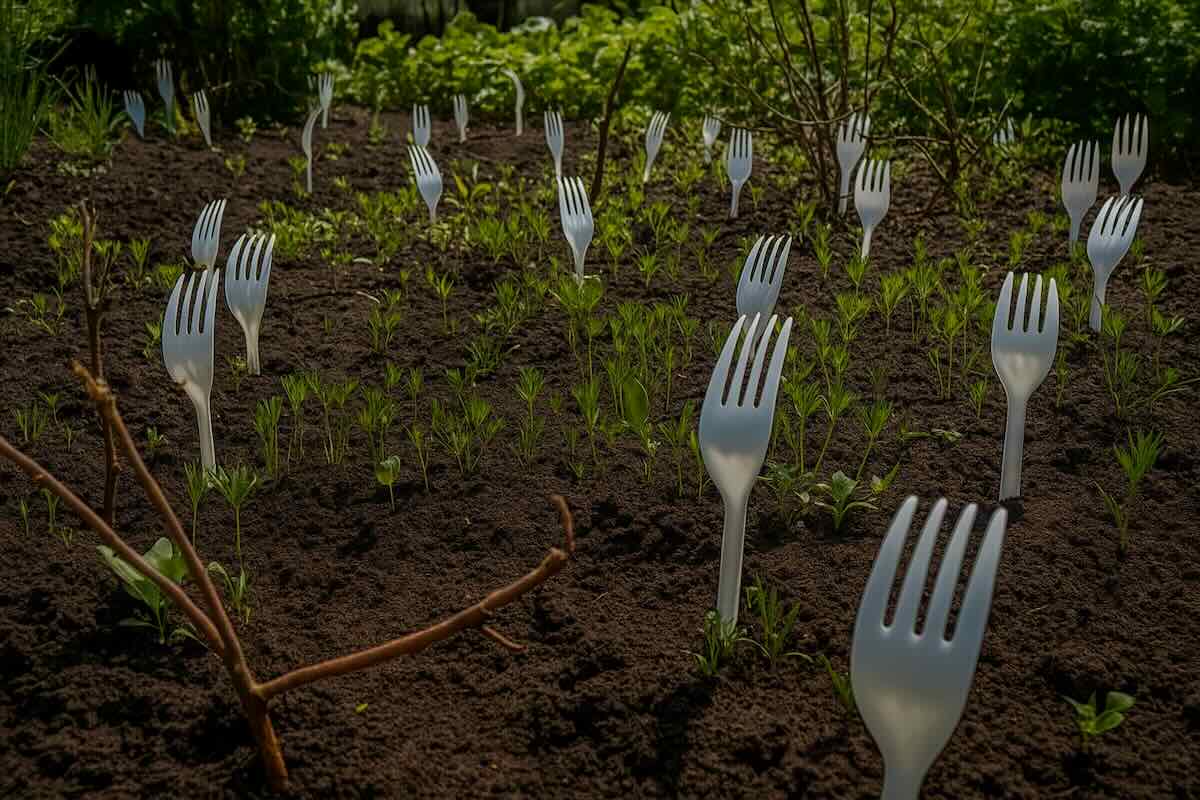If you’re an enthusiastic gardener or someone who simply enjoys tending a vegetable patch, you’ve likely battled with garden pests. Whether it’s cats, deer, or those pesky squirrels, seeing your hard work undone by these uninvited visitors can be disheartening. But did you know a simple plastic fork could be your secret weapon against them?
A Simple Trick with Surprising Results
Many experienced gardeners share unusual yet effective tips for keeping pests at bay. One clever, budget-friendly method involves using plastic forks. yes, really! As reported by The Express and supported by gardening site Farm Flavour, sticking plastic forks into the soil around your plants can act as both a visual and physical deterrent to curious animals.
Although this method hasn’t been scientifically verified, countless gardeners report fewer animal intrusions after implementing this simple trick.
How Does It Work?
The idea is straightforward. Animals such as cats and squirrels tend to avoid uncomfortable or unfamiliar surfaces. By planting plastic forks with the prongs facing up, you create an inhospitable surface they’ll hesitate to walk or rest on.
This not only helps protect your plants physically but also discourages repeated visits, all without using chemicals or expensive solutions. To boost the effect, some gardeners also use strong-smelling bay leaves around their crops as a natural complement to the forks.
Unexpected Benefits of Using Plastic Forks
Besides keeping intruders away, plastic forks offer several other unexpected advantages for eco-conscious gardeners:
Natural Pest Repellent
Forks make it difficult for animals to dig, scratch, or get comfortable, so they often look for easier targets elsewhere.
Cost-Effective Solution
Reusing old plastic forks saves money and reduces the need for fences or store-bought repellents.
Flexible and Easy to Install
Unlike permanent fencing, forks can be moved or repositioned as your garden layout evolves.
An Environmentally Mindful Option
In an era where plastic waste is a growing concern, reusing disposable utensils in the garden gives them a second life. However, it’s important to use this solution thoughtfully. Always ensure the plastic you use is clean, non-toxic, and doesn’t disrupt your garden’s natural balance.
Other Natural Methods to Keep Pests Away
Plastic forks are helpful, but they’re just one tool in a broader natural pest control toolkit. Here are some additional strategies that work wonders in a sustainable garden:
Sprinkle Cayenne Pepper
One of the most effective natural repellents is cayenne pepper. Sprinkling about a quarter cup around your plants can deter animals due to its strong scent and taste. It’s a non-toxic method that protects your crops without harming them. Essential oils like peppermint or citronella can also be used for a more aromatic approach.
Use Dried Coffee Grounds
Dried coffee grounds are a gardener’s best friend. Not only do they repel slugs and snails, but they also enrich your soil with nitrogen, potassium, and phosphorus. As a bonus, coffee grounds help boost plant growth and can deter pests naturally sustainability and productivity in one move.
Companion Planting: A Holistic Defense Strategy
Beyond one-off solutions, a long-term approach to pest prevention lies in companion planting, the strategic pairing of plants that naturally support each other.
Examples of Beneficial Pairings
-
Marigolds and Tomatoes: The strong scent of marigolds repels many insects that typically affect tomato plants.
-
Basil and Peppers: Basil not only enhances pepper flavor but also helps reduce mites and other tiny invaders.
-
Parsley and Roses: This pairing can combat rust and other fungal diseases that often affect rose bushes.
These combinations not only fend off pests but also improve plant health, yield, and garden aesthetics.
Keeping pests out of your garden doesn’t have to involve harsh chemicals or expensive gear. Sometimes, the simplest tools like plastic forks, can offer surprisingly effective protection. By combining this trick with other natural strategies such as cayenne pepper, coffee grounds, and companion planting, you can build a thriving garden that’s both productive and ecologically sound.
With a little creativity and a mindful approach, your vegetable patch can flourish, free from unwanted visitors and full of healthy, happy plants.

